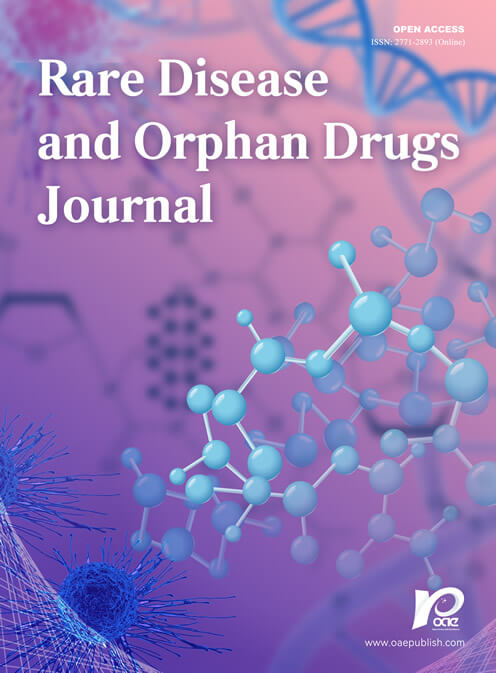REFERENCES
2. Tuttolomondo A, Pecoraro R, Simonetta I, Miceli S, Pinto A, Licata G. Anderson-Fabry disease: a multiorgan disease. Curr Pharm Design. 2013;19:5974-96.
3. Wanner C, Ortiz A, Wilcox WR, et al. Global reach of over 20 years of experience in the patient-centered Fabry registry: advancement of Fabry disease expertise and dissemination of real-world evidence to the Fabry community. Mol Genet Metab. 2023;139:107603.
4. Cubellis MV, Baaden M, Andreotti G. Taming molecular flexibility to tackle rare diseases. Biochimie. 2015;113:54-8.
5. Üçeyler N, Ganendiran S, Kramer D, Sommer C. Characterization of pain in fabry disease. Clin J Pain. 2014;30:915-20.
6. Germain DP, Fouilhoux A, Decramer S, et al. Consensus recommendations for diagnosis, management and treatment of Fabry disease in paediatric patients. Clin Genet. 2019;96:107-17.
7. Del Pino M, Andrés A, Bernabéu AÁ, et al. Fabry nephropathy: an evidence-based narrative review. Kidney Blood Press Res. 2018;43:406-21.
8. Azevedo O, Cordeiro F, Gago MF, et al. Fabry disease and the heart: a comprehensive review. Int J Mol Sci. 2021;22:4434.
9. Demuth K, Germain DP. Endothelial markers and homocysteine in patients with classic Fabry disease. Acta Paediatr Suppl. 2002;91:57-61.
10. Rost NS, Cloonan L, Kanakis AS, et al. Determinants of white matter hyperintensity burden in patients with Fabry disease. Neurology. 2016;86:1880-6.
11. Amann-Vesti BR, Gitzelmann G, Widmer U, Bosshard NU, Steinmann B, Koppensteiner R. Severe lymphatic microangiopathy in Fabry disease. Lymphat Res Biol. 2003;1:185-9.
12. Alkhatib D, Vega JA, Pour-Ghaz I, et al. Prevalence of lymphedema among Anderson-Fabry disease patients: a report from the Fabry registry. Mol Genet Metab. 2023;138:107538.
13. Orteu CH, Jansen T, Lidove O, et al. FOS Investigators. Fabry disease and the skin: data from FOS, the Fabry outcome survey. Br J Dermatol. 2007;157:331-7.
14. Bollinger A, Amann-Vesti BR. Fluorescence microlymphography: diagnostic potential in lymphedema and basis for the measurement of lymphatic pressure and flow velocity. Lymphology. 2007;40:52-62.
15. Germain DP, Brand E, Burlina A, et al. Phenotypic characteristics of the p.Asn215Ser (p.N215S) GLA mutation in male and female patients with Fabry disease: a multicenter Fabry registry study. Mol Genet Genomic Med. 2018;6:492-503.
16. Goettsch WG, Bouwes Bavinck JN, Herings RM. Burden of illness of bacterial cellulitis and erysipelas of the leg in the Netherlands. J Eur Acad Dermatol Venereol. 2006;20:834-9.
17. Bartholomeeusen S, Vandenbroucke J, Truyers C, Buntinx F. Epidemiology and comorbidity of erysipelas in primary care. Dermatology. 2007;215:118-22.
18. Spierings EJW, van der Meer JWM, Simon A. Pitfall of modern genetics: recurrent erysipelas masquerading as autoinflammatory disease. Neth J Med. 2017;75:247-9.
19. Quéré I, Nagot N, Vikkula M. Incidence of cellulitis among children with primary lymphedema. N Eng J Med. 2018;378:2047-8.
20. Sapuła M, Krankowska D, Wiercińska-Drapało A. In search of risk factors for recurrent erysipelas and cellulitis of the lower limb: a cross-sectional study of epidemiological characteristics of patients hospitalized due to skin and soft-tissue infections. Interdiscip Perspect Infect Dis. 2020;2020:1307232.
22. Li A, Wang N, Ge L, Xin H, Li W. Risk factors of recurrent erysipelas in adult Chinese patients: a prospective cohort study. BMC Infect Dis. 2021;21:26.
23. Ren Z, Silverberg JI. Burden, risk factors, and infectious complications of cellulitis and erysipelas in US adults and children in the emergency department setting. J Am Acad Dermatol. 2021;84:1496-503.
24. Burian EA, Franks PJ, Borman P, et al. Factors associated with cellulitis in lymphoedema of the arm - an international cross-sectional study (LIMPRINT). BMC Infect Dis. 2024;24:102.
25. Dalal A, Eskin-Schwartz M, Mimouni D, et al. Interventions for the prevention of recurrent erysipelas and cellulitis. Cochrane Database Syst Rev. 2017;6:CD009758.
26. Kelmann SV. Dermatological manifestations in Fabry disease. In: Xavier de Ávila D, Villacorta Junior H, editors. Amyloidosis and Fabry disease: a clinical guide. Cham: Springer International Publishing; 2023. p. 351-7.
27. Vignes S, Albuisson J, Champion L, et al. French National Referral Center for Primary Lymphedema. Primary lymphedema French National Diagnosis and Care Protocol (PNDS; Protocole National de Diagnostic et de Soins). Orphanet J Rare Dis. 2021;16:18.
28. Brouillard P, Witte MH, Erickson RP, et al. Primary lymphoedema. Nat Rev Dis Primers. 2021;7:77.
29. Cannon J, Rajakaruna G, Dyer J, Carapetis J, Manning L. Severe lower limb cellulitis: defining the epidemiology and risk factors for primary episodes in a population-based case-control study. Clin Microbiol Infect. 2018;24:1089-94.
30. Altarescu G, Moore DF, Pursley R, et al. Enhanced endothelium-dependent vasodilation in Fabry disease. Stroke. 2001;32:1559-62.
31. Rozenfeld P, Feriozzi S. Contribution of inflammatory pathways to Fabry disease pathogenesis. Mol Genet Metab. 2017;122:19-27.
32. Nowak A, Beuschlein F, Sivasubramaniam V, Kasper D, Warnock DG. Lyso-Gb3 associates with adverse long-term outcome in patients with Fabry disease. J Med Genet. 2022;59:287-93.
33. Choi JB, Seol DW, Do HS, et al. Fasudil alleviates the vascular endothelial dysfunction and several phenotypes of Fabry disease. Mol Ther. 2023;31:1002-16.
34. Arowolo A, Rhoda C, Khumalo N. Mutations within the putative protease domain of the human FAM111B gene may predict disease severity and poor prognosis: a review of POIKTMP cases. Exp Dermatol. 2022;31:648-54.
35. Smith E, Patel M, Thomas KS. Which outcomes are reported in cellulitis trials? Br J Dermatol. 2018;178:1028-34.








